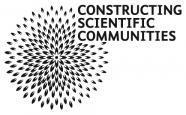
Our programme for Michaelmas Term 2017 is now announced with three seminars at St Anne’s College.
Drinks will be served after each seminar. All welcome, no booking is required.
Tuesday 24 October 2017 (Week 3)
Dr Helen Cowie, University of York
From the Andes to the Outback: Acclimatising Alpacas in the British Empire
5.30—7.00, Seminar Room 3, St Anne’s College
Abstract: This paper examines attempts to naturalise the alpaca in the British Empire. In the nineteenth century Britain made concerted efforts to appropriate useful plants and animals and acclimatise them within its own colonies. The alpaca was a prime target for acclimatisers on account of its silken wool, which was manufactured into a range of luxury textiles. Its export was, however, banned by law in Peru and Bolivia, so the animals had to be smuggled out of the Andean states and shipped illegally to Britain and Australia. The paper studies the circuits of exchange that facilitated the transfer of alpacas from one continent to another and considers how British subjects in places as diverse as Bradford, Liverpool, Sydney and Arequipa promoted and benefited from the naturalisation scheme. It situates alpaca acclimatisation within a wider discourse of agricultural ‘improvement’, bio-piracy and imperial adventure.
Tuesday 7 November 2017 (Week 5)
Professor Martin Willis, Cardiff University
The Good Places of Sleep: Nineteenth-Century Utopian Fictions and Sleep Research
5.30—7.00, Seminar Room 3, St Anne’s College
Abstract: We seem obsessed by the quality of our sleep in the early twenty-first century, yet the high point of sleep research was the second half of the nineteenth century, and particularly the period from 1880-1900, when modern sleep studies began. For the Victorians, sleep was an active state, (linked often to other cognitive pathologies and dissonances such as catalepsy and epilepsy) which enabled or disabled certain functions of mind and body. How one slept was therefore of considerable interest to the general public as well as to physiologists, physicians and neurologists. Concurrent with this avid attention to the epistemologies of sleep, utopian fictions employed sleep as a foundation for asking questions of ideal lives and worlds. Often, other worlds were entered through the medium of sleep. This seminar will consider the connections between sleep and utopia and ask whether sleep is itself a good place.
Tuesday 21 November (Week 7)
Professor Kirsten E Shepherd-Barr, University of Oxford
Infectious Ideas: Mechanisms of Transmission in the 19th Century
5.30—7.00, Seminar Room 3, St Anne’s College
Abstract: This paper explores the semantic instability of the term “contagion” in the nineteenth century as refracted through theatre and performance, with key examples as case studies. I’ll look at 19th-century theatrical engagements with evolution, biology, and other related sciences, to show theatre’s preoccupation with mechanisms of transmission broadly conceived—from imaginative versions of heredity (including telegony in Ibsen and Strindberg, for instance) to breastfeeding on stage in Herne and Brieux to the “contagious” theatricality at the heart of Charlotte Mew’s short story “A White Night.” These and other examples can help us think about how and when the line began to blur between a strictly medical definition of contagion and a fuzzier “social disease” usage, onto which theatre cottoned very early on. I will then trace the powerful legacy of these theatrical engagements with contagion, looking first at how Artaud radically extends earlier metaphoric uses of contagion into his immersive, experiential “plague” and finally exploring the present day in which virtual contagion games allow the user to “perform” plagues and pandemics. A unifying thread running through all of these examples is how contagion relates to definitions of culture (e.g. Greenblatt, Foucault) founded, paradoxically, on containment and control. Finally, I will explore briefly how all of this relates to the wider issue of how to forge productive disciplinary cross-contaminations in a professional environment that increasingly regulates, directs, and manages trans- or interdisciplinarity.



